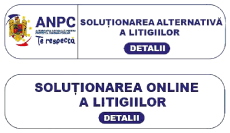
Crises such as cardiac arrest or hemorrhage are rare during procedures in ORs, but when they occur, they require a rapid, effective response from the OR team to ensure a good outcome for the patient. The OR Crisis Checklists (ORCCs) were developed by a team at Ariadne Labs in 2011, and it has been shown, in medical simulations, that clinical teams using the ORCCs demonstrated a 75% improvement in performance.
Since their launch, the ORCCs have been downloaded thousands of times, translated into multiple languages, and used around the world.
In 2017, Ariadne collaborated with Stanford University to develop an online Implementation Toolkit to support effective introduction of the tools into practice and expand reach of the ORCCs, recognizing the distinction between having the checklists and using the checklists. Earlier, the two groups launched the Emergency Manuals Implementation Collaborative, bringing together developers, researchers and users of operating room cognitive aids.
In 2023, with the support of the Doctors Company Foundation, Ariadne completed a major update, expansion and digitization of the checklists, including new tools to edit checklist content to meet varying local needs. We are grateful to the Ariadne team and our many collaborators for pushing this work forward. All those involved in bringing this update to fruition can be found on our Acknowledgements page.
Below you can find all the different options we offer to use and customize the new and updated ORCCs, available materials you will need for each option and links to get started:
OPTION A

- Download the PDF version of the standard 17-checklist ORCC package and use it either as a printed version in your OR or view it on an electronic device with a PDF reader.
- This option is best suited for users who are ready to use the compendium as is and may not want to rely on technology. Be sure to review the Guide to Clinical Use and Implementation Toolkit before starting any implementation effort.
- Advantage of a printed paper version: does not rely on power or internet and readily available in the OR.
- Advantage of the PDF version: navigation among checklists is simplified via bookmarks.
OPTION B

- Consult the web version of the standard ORCC package that is mobile friendly
- This option is best suited for users who want to access the compendium as is and have access to reliable Internet. Be sure to review the Guide to Clinical Use and Implementation Toolkit before starting any implementation effort.
- Advantage: can be accessed on any electronic device (desktop, laptop, tablet, smartphone) with internet connection
OPTION C

- Use the editing tool on the web version to make institution-specific updates to the compendium and create PDF versions of customized checklists (one at a time)
- This option is best suited for users who wish to make customization to the current compendium before implementation. These updates can range from drug dosing to updating certain protocols in the checklist to better fit standardized processes at your institution. To get started, review the Manual for Standard and Customized OR Crisis Checklists which walks through how to use the online editing tool and includes illustrations that identify the editing options available in each checklist. After reviewing the guide and identifying the changes that need to be made, proceed to the editing tool on a desktop, laptop or tablet to make the identified updates and save your new updated checklists in PDF format (one at a time) and/or directly print them on paper.
Advantage: you can customize checklists to the needs of your institution and create your own pdf package or paper version, however you will lose the ability to navigate between checklists – a feature available in the standard PDF package.
OPTION D

- Download the website code in order to self-host a customized web version of the ORCC package (requires IT support)
- This option is best suited for organizations interested in self-hosting customized versions of the ORCCs as a responsive, mobile-friendly website. It will require IT resources to do this. To explore this option a bit more and understand what is needed to host the code for ORCC at your institution, review the hosting guide.
- Advantage: you can have your own mobile friendly web version of your customized checklists hosted at your institution.

